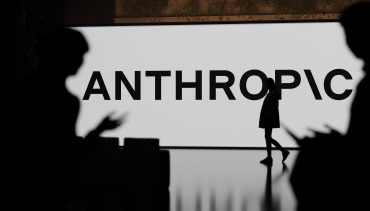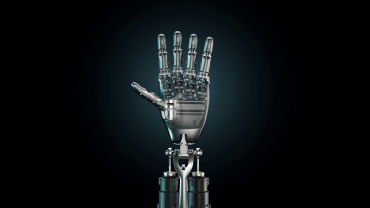
- AI Ethics
- Artificial Intelligence
- Regulatory Risk
Anthropic Settles First AI Copyright Class Action on Training Data
6 minute read

AI copyright lawsuit settlement forces tech companies to reevaluate training data practices as legal risks mount nationwide
Key Takeaways
- First certified class action settlement against an AI company sees Anthropic resolve copyright infringement claims from three authors over unauthorized use of their works to train Claude chatbot, with terms expected to be finalized by September 3.
- $1 trillion damage exposure avoided as Anthropic faced potential statutory damages of up to $150,000 per work for willfully infringing on over 7 million pirated works used in AI training datasets.
- Legal precedent established with federal judge ruling that AI training on legitimately sourced copyrighted books constitutes fair use, while pirating materials from shadow libraries like LibGen remains illegal.
Introduction
AI startup Anthropic has reached a groundbreaking settlement in the first certified class action lawsuit against an AI company over copyright infringement. The San Francisco-based company agreed to resolve claims from three authors who accused it of using pirated versions of their books to train its Claude chatbot.
The case marks a pivotal moment for the artificial intelligence industry as companies face mounting legal challenges over their data collection practices. Anthropic’s settlement avoids what could have been catastrophic financial exposure while establishing important precedents for AI training and copyright law.
Key Developments
Authors Andrea Bartz, Charles Graeber, and Kirk Wallace filed the lawsuit in August 2024, alleging Anthropic violated their copyrights by training Claude on unauthorized versions of their works. The company built its training dataset using materials from piracy websites including Books3, Library Genesis, and Pirate Library Mirror.
U.S. District Judge William Alsup delivered a split ruling in June that provided both sides with partial victories. The judge determined that training AI models on legitimately purchased copyrighted books constitutes “exceedingly transformative” fair use under copyright law. However, he ruled that obtaining training materials through piracy websites violated copyright protections.
Anthropic’s potential exposure reached staggering heights, with statutory damages of up to $150,000 per infringed work potentially resulting in liabilities exceeding $1 trillion. The company reportedly used over 7 million works in its training process, creating unprecedented financial risk.
Market Impact
The settlement sends ripple effects through the AI sector as investors and companies reassess legal risks associated with training data acquisition. AI companies now face heightened scrutiny over their data sourcing practices, with potential implications for development costs and timelines.
Legal compliance investments are expected to increase across the industry as companies pivot toward licensed datasets and partnerships with content creators. This shift represents a fundamental change in operational strategies for AI firms that previously relied on freely scraping internet content.
The case establishes a framework for future litigation, with content owners increasingly asserting their rights against wholesale data collection. Industry observers anticipate a wave of similar lawsuits targeting major AI developers.
Strategic Insights
The settlement reveals the growing tension between AI innovation and intellectual property protection. Companies can no longer assume that training on copyrighted material falls automatically under fair use provisions, particularly when source materials are obtained through unauthorized channels.
Anthropic’s legal strategy of purchasing books after initially pirating them proved insufficient to avoid liability. This ruling clarifies that retroactive legitimization does not absolve companies of earlier copyright violations.
The case highlights the need for transparent data sourcing strategies. AI companies must now implement robust compliance frameworks and consider licensing agreements with publishers and content creators to avoid similar legal challenges.
Expert Opinions and Data
Justin Nelson, partner at Susman Godfrey and attorney for the plaintiff authors, characterized the agreement as groundbreaking. “This historic settlement will benefit all class members,” Nelson stated. “We look forward to announcing details of the settlement in the coming weeks.”
According to Reuters, the judge’s ruling creates a clear distinction between legitimate and illegitimate AI training practices. Legal experts view this precedent as the “first domino to fall” in a series of copyright challenges facing the tech sector.
The case occurs amid broader regulatory uncertainty, with the Trump administration’s AI Action Plan lacking specific guidance on copyright issues. The U.S. Copyright Office maintains a case-by-case approach to evaluating AI training under fair use doctrine.
Industry analysts expect increased demand for legitimate data licensing deals between AI firms and content creators. This shift toward authorized partnerships represents a fundamental change from the previous model of unrestricted data collection.
Conclusion
Anthropic’s settlement establishes critical precedents for AI development and copyright law while demonstrating the substantial financial risks companies face when using unauthorized training materials. The agreement signals a broader industry shift toward compliance-focused development strategies and legitimate data sourcing practices.
The case sets the stage for ongoing litigation against other AI companies, with content creators emboldened to assert their intellectual property rights. Legal compliance and ethical data sourcing now represent core business imperatives for AI firms navigating an increasingly complex regulatory landscape.







